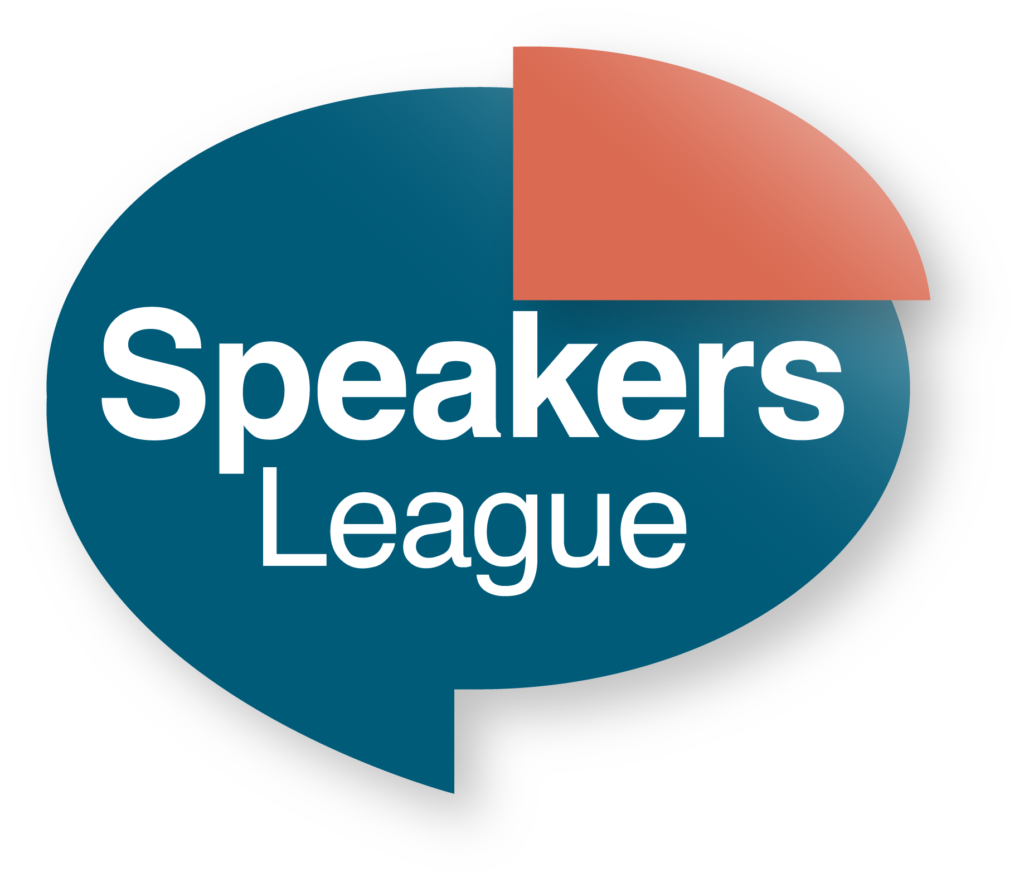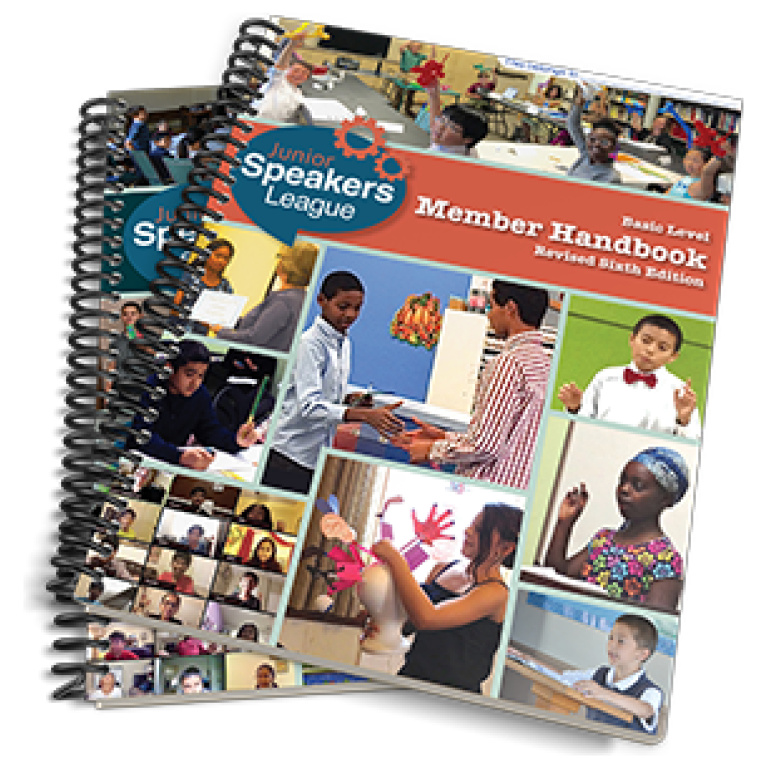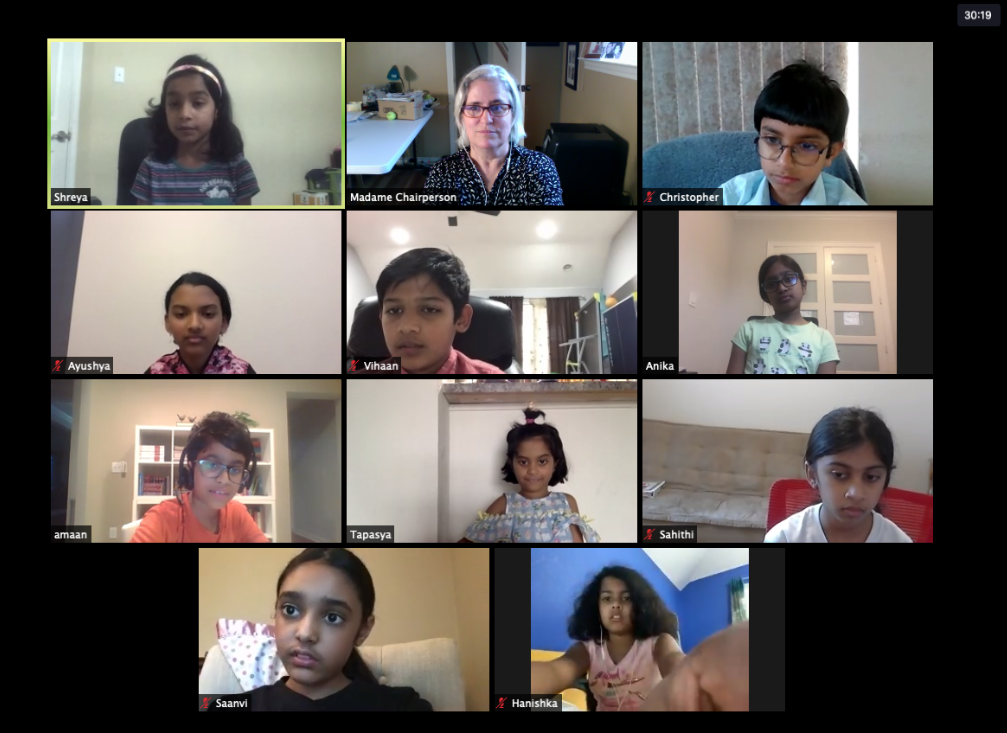
Junior Speakers League clubs (recommended for children ages 7-9) are a great place to begin learning public speaking skills.
The club meetings are very similar in format to Speakers League meetings, with opportunities for impromptu speaking, prepared speeches, and speech evaluations, but the club Chairperson is more hands-on in JSL, making sure the members are ready for, and understand what’s going on at the meetings.
The Member Handbook is simpler in JSL and in the Basic Level the members have a worksheet for all speeches they give, to help them achieve the goals of the speech, for example using gestures or vocal variety or visual aids. Like Speakers League, JSL is a progressively-challenging environment to learn public speaking skills and meeting management.
There are three levels in Junior Speakers League – Basic, Intermediate, and Advanced. To move from one level to the next, members must successfully give all six speeches in that level, and do each role at the meeting (like Evaluator, Timekeeper, MC, etc.) successfully, at least once, during that level.
Although Junior Speakers League clubs are adult led, the presence of a parent or other adult aide may be required to ensure any needs are met that might arise for the member. Additionally, parents are expected to ensure that their children are prepared for their roles at meetings.
What happens at a typical Junior Speakers League meeting?
Meetings follow the same basic format each time. The adult facilitator, referred to as the Club Chairperson, makes any necessary announcements and goes over the club schedule for the day and makes sure that the members are ready for their roles. The members are pre-assigned to a specific role at the meeting (these rotate from meeting to meeting). A member might be assigned to be the Timekeeper, Vote Counter, a Speaker, an Evaluator, or the MC, for example. Members learn how to do these roles through a combination of reviewing their member handbook (see sample pages here), training videos, and practice activities in the club.
In addition to the meeting roles mentioned above, Junior Speakers League members periodically present prepared speeches, starting with the “Focus on You” speech, and then the “Focus on Gestures” speech, and “Focus on Vocal Variety,” “Focus on Visual Aids” “Focus on Organizing,” and “Focus on Knowledge” speeches. Each 3 – 5 minute speech in the Basic Level is geared to develop a different presentation skills. There are three levels in Junior Speakers League – Basic, Intermediate, and Advanced.
While many children in the club develop a readiness for a regular Speakers League club, and eventually transfer, some members remain with Junior Speakers League until they age out at 14, because it remains the best fit for them.
How do the members learn how to do the different roles and learn how to give a speech?
When members join, they receive a Member Handbook that, among other things, describes how to do each role at a meeting. Members learn how to do their roles through a combination of reviewing their member handbook (see sample pages here), training videos, practice activities in the club, and observing. Of course, the club chairperson (the adult supervisor of the club) provides help where needed, as well as the parent or aide, if necessary.


Junior Speakers League video conference meetings work well!
Readiness Guidelines
Impulse Control
Can refrain from speaking out of turn and creating distractions, alone or with some assistance.
Can refrain from speaking out of turn and creating distractions.
Reading Ability
Can read well, or with minor assistance.
Can read well.
Verbal Ability
Can be understood verbally, in general.
Can be easily understood, verbally, at all times.
Participation Readiness
Can quickly self-regulate, with or without assistance, to avoid episodes of non-participation or outbursts due to frustration.
Willing and able to verbally participate during all segments of the meeting and for any assigned roles.
Task Management
Can follow simple instructions to manage tasks responsibly, alone or with some assistance.
After reading or receiving satisfactory verbal instructions, does not require at-desk assistance to responsibly manage tasks.
Knowledge Acquisition
Requires additional time, experience, and/or support to understand concepts and accomplish tasks.
Learns and understands fairly quickly and picks up knowledge, well, through observation.
Attention and Focus
Can focus on a speech of 3-5 minutes, and, using a sheet of guidelines, provide guideline-driven feedback.
Can listen critically and with training, provide meaningful, constructive feedback.
Parent/Aide Involvement
In attendance at all meetings until your member can manage items above without assistance. No verbal interjection during the meeting, unless seated beside the member, or at request of club chairperson.
Drop off member, or observe from the side or rear of the room. No verbal interjection during the meeting, unless at request of club chairperson.
I don’t feel confident because I have never taught a class. Should I still get a charter?
The materials have been created to allow you to manage a club of children who meet the readiness guidelines outlined here. The degree of readiness suggested should permit a competent adult to supervise a club without too much difficulty. With the requirement of a parent or other aide for a child who requires assistance, you should find that you can manage a club easily. If you cannot, one or more of the children would probably not be considered “ready.”